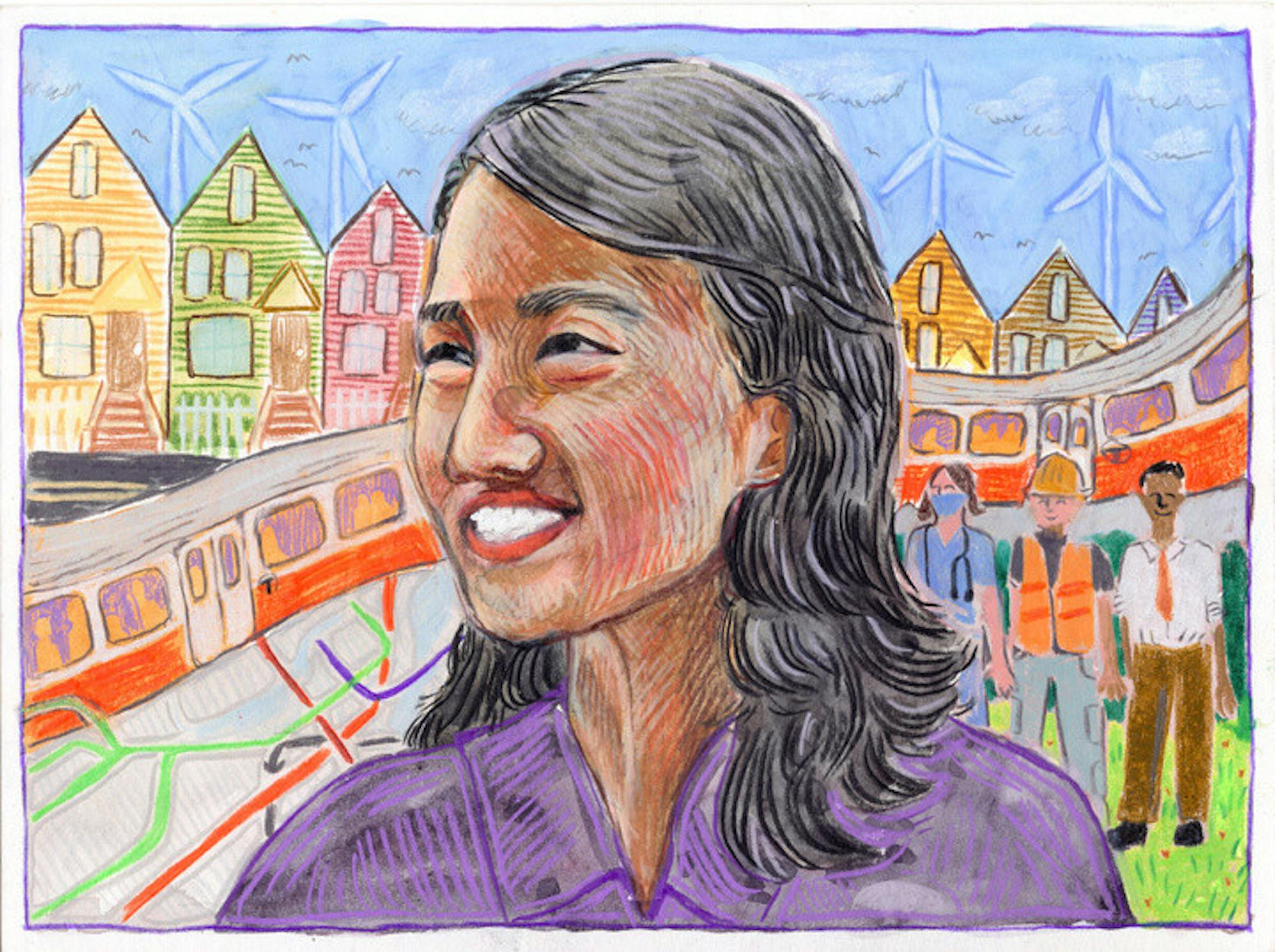On Nov. 2, Michelle Wu was elected mayor of Boston. This result was predicted — Wu was leading the polls for weeks — but it represents a historic achievement for the city of Boston. The outcome of this election would have been historic regardless of the winner, as both Wu and her opponent, Annissa Essaibi George, are women of color in a city that has only ever elected white men. In fact, all of the top four candidates in the primary election were women of color, illustrating the growing voice of minority populations that make up over 50% of Boston’s populace.
Wu’s election represents the turning over of a new leaf for the city of Boston. For many, Essaibi George — with her Boston accent, more moderate policies and endorsement from unions and working class individuals — appeared to be an ideal candidate in the form of Marty Walsh and other popular former mayors. The recent election of President Joe Biden made her victory seem more likely. The president’s party nearly always loses seats in the next elections amidst dissatisfaction, with voters reacting to perceived failures and instead supporting more moderate candidates or even the other party — as was seen in the election ofGlenn Youngkin as Virginia governor.
But Wu, Senator Elizabeth Warren’sprotegé and even further left than Biden, created a constituency of higher-educated liberal and minority voters which overcame the historically moderate labor base and won the election by a landslide. She convinced Boston to believe in the possibility of transformative change.
Wu and Essaibi George agreed on many issues and policies such as the importance of confronting the epidemics of addiction and homelessness in the city and improving Boston’s public school system. However, on some policies, Wu has taken a more progressive stance that will make drastic changes in Boston as well on the Tufts University campus in Medford/Somerville.
Onepolicy Wu intends to pursue, which Essaibi George opposed, is rent control. This would cap the annual rise of rents, which could greatly benefit Tufts students attending school at the Fenway or Grafton campuses and those living in Boston. This precedent could also urge the new mayor of Somerville, Katjana Ballantyne, who supports lifting the ban on the rent control, as well as Mayor Breanna Lungo-Koehn of Medford, to enact rent control policies that prevent housing costs from continuing to skyrocket for Tufts students in the area.
Another one of Wu’s more progressive and transformative policies is her “Green New Deal” for Boston.This plan includes many far-reaching policies, including accelerating decarbonization, expanding clean energy financing, divesting from fossil fuels and reinvesting in a “climate-just future,” developing a green workforce and promoting food justice policies. A version of Representative Alexandria Ocasio-Cortez and Senator Ed Markey’s national Green New Deal, this plan aims to get to zero emissions by 2040, 10 years before Biden and former Boston mayor Marty Walsh’s goal of 2050. For an issue as global and existential as climate change, this approach will not only improve environmental conditions in and around Boston, but it will also set a precedent for other liberal cities and towns across the country to enact aggressive policies combating climate change at the local level.
Another one of Wu’s promises regarding transportation would directly affect the lives of many Tufts students — her plan to make MBTA transit fare-free. As a member of the city council, Wu has already successfully made bus Route 28 fare-free. As mayor, she intends to extend this program, first to other bus routes and then to the entire Massachusetts Bay Transportation Authority system — including the T. With the new T station at Tufts set to be completed in May 2022, Tufts will have even easier access to the Boston area’s public transportation. If Wu succeeds in creating a fare-free system for the MBTA, Tufts students will be able to take the T into the city at no personal cost.
Michelle Wu has beaten the odds in her election as mayor of Boston. Her message of greater equitability and progressive change seems to have resonated with many Bostonians as she became the first woman and person of color to be elected to the role. If she enacts the policies on which she campaigned, it will mean sweeping progressive change for Boston and its surrounding communities, including the Tufts campus, and could set precedents for other Democrat-led cities across the country.






